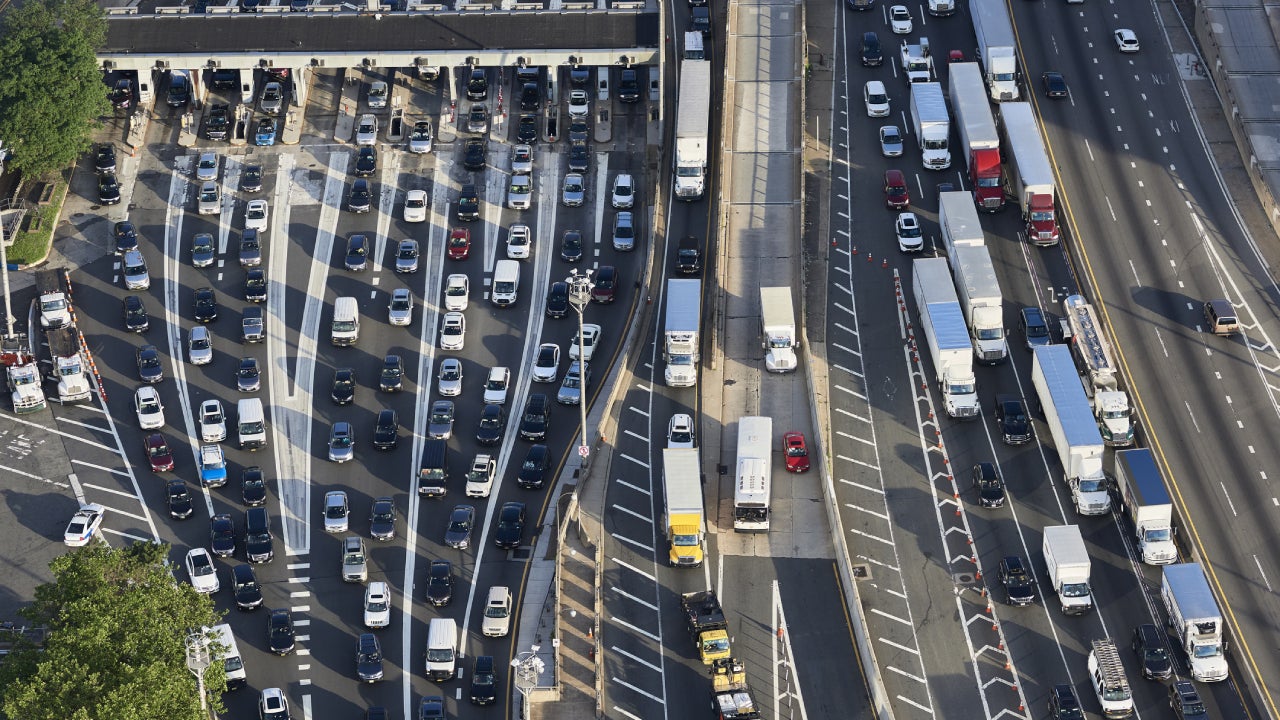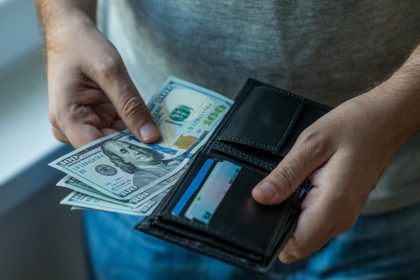In NJ, driving without insurance is illegal and is never a good idea. In addition to the out-of-pocket costs you’d face if you’re involved in an accident, you will also face multiple penalties, possibly even jail time. If you are stopped by a police officer or involved in an accident, you’ll need to produce proof of insurance, either in the form of a paper card or electronically. Not having proof could have grave consequences. We did the research on driving without insurance in New Jersey to help you understand the Garden State’s car insurance laws and regulations so you can ensure that you have the right coverage when you’re behind the wheel.
New Jersey car insurance laws
Car insurance laws in New Jersey are unusual in that they offer two options for drivers. The standard policy features minimum requirements for bodily injury liability and property damage liability, along with a few other types of coverage, which we’ll outline below.
If you are denied standard coverage or are unable to afford it, however, the state allows for a basic policy, which has lower liability requirements and does not include uninsured/underinsured motorist coverage. You may not be able to purchase collision and comprehensive coverage from some insurers, either. Although the basic policy costs less, it provides less robust protection and could leave you with out-of-pocket costs following a serious accident.
Most insurance experts recommend that you buy standard coverage if you can afford it. This type of insurance has a broader range of coverage types and is more likely to cover all the costs (minus any deductibles) if you are in an accident or have another type of vehicle mishap, such as theft or vandalism.
In 2023, New Jersey legislators increased the minimum required limits for a standard policy’s coverage. Now, the limits are 25/50/25, which translates as follows:
- $25,000 in bodily injury liability per person per accident
- $50,000 in bodily injury liability total per accident
- $25,000 in property damage liability per accident
In addition, drivers need to have $15,000 in personal injury protection (PIP) and 25/50 of uninsured/underinsured motorist coverage. In 2026, the mandatory limits will increase again under state law to 35/70/25, with 35/70 of uninsured/underinsured motorist coverage. PIP will remain at $15,000.
Penalties for driving without insurance in New Jersey
If you are caught driving without insurance in NJ, penalty options include financial surcharges, potential jail time and more. New Jersey law includes, but may not be limited to, the following penalties for those with no coverage:
| Penalty type | First offense | Subsequent offenses |
|---|---|---|
| Fines MVC surcharge |
$300 to $1,000 $250 for three years ($750 total) |
Up to $5,000 $250 for three years ($750 total) |
| License suspension | Up to one year | Two years |
| NJ MVC restoration fee | $100 for license reinstatement | $100 for license reinstatement |
| Jail time | N/A | 14 days |
| Community service | To be determined by the court | 30 days |
The New Jersey penalty for driving without insurance depends in part on how many times this has happened to you before. First time offenders generally face lesser penalties. Additionally, if you cause an accident without insurance, you could be facing the penalties outlined above on top of having to pay out of pocket for the damages you caused. Generally, drivers do not earn points on their license for driving uninsured.
You may also be required to obtain an SR-22 certificate, especially if your incident included other risky behaviors like drinking and driving or reckless driving. An SR-22 is a form that an insurance company files with the state to prove that you have the minimum required coverage.
To obtain one, you’ll need to find a company that insures high-risk drivers in New Jersey and ask for the form to be filed on your behalf. You’ll have to do this before you are eligible to reinstate your license.
Not all carriers will insure high-risk drivers, and you’ll likely face a higher premium due to the driving behavior that caused the need for an SR-22. The best way to avoid these expensive policies is to practice safe driving and always carry the proper insurance on your vehicle.
Getting into an accident without insurance in New Jersey
Getting into an accident without car insurance in New Jersey is a serious infraction. Not only will you likely be subject to fines, community service, license suspension and potential jail time, but you will also be financially responsible for the damages you caused. Without insurance, you’ll have to pay out of pocket. Depending on the severity of the accident, this could be a huge financial setback.
New Jersey’s “No Pay, No Play” law
New Jersey is one of several states that has a No Pay, No Play law. These laws are designed to help reduce the stress on insurance companies in terms of paying claims for drivers who don’t carry insurance. Essentially, if you are driving without insurance in New Jersey and someone hits you, you will not be able to collect any claim payout for noneconomic damages, including pain and suffering or mental anguish. Uninsured drivers in New Jersey are also unable to sue for compensation for personal injury and may be limited in their ability to collect for property damage.
Uninsured drivers who get hit by an insured driver and sustain serious injuries may be able to file a claim with their health insurance company to get reimbursed for their medical bills. Having a car insurance policy not only protects you from driving without insurance penalties, it also protects your finances from the fallout of at-fault losses and entitles you to greater compensation if you are not at fault for an accident.
Frequently asked questions
Why we ask for feedback
Your feedback helps us improve our content and services. It takes less than a minute to
complete.
Your responses are anonymous and will only be used for improving our website.
Help us improve our content
Read the full article here
















